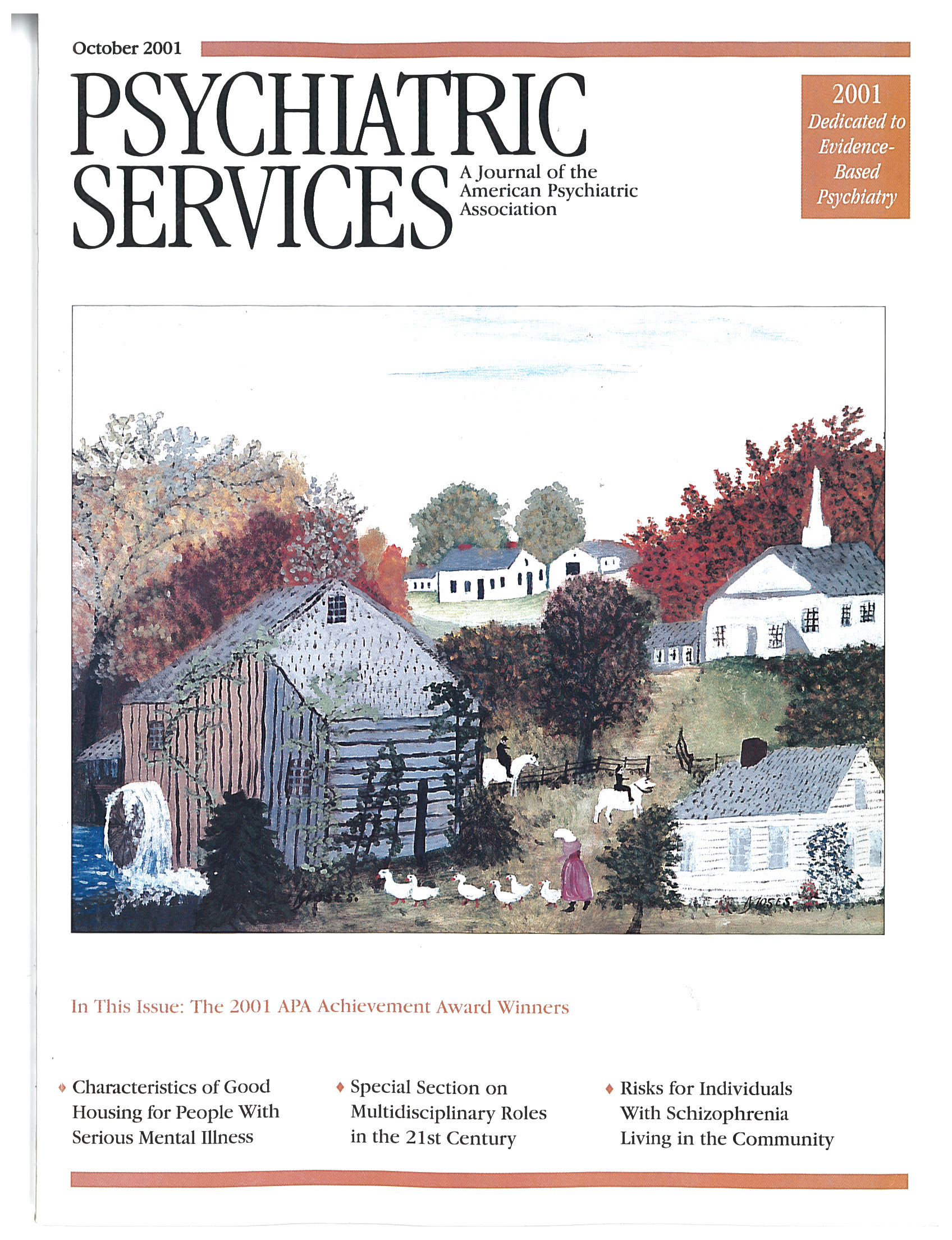In Reply: As codevelopers of the assertive community treatment model, we believe it is important to clarify several issues raised by Dr. Gomory in his letter, in which he contends that it is premature to move assertive community treatment into standard practice as discussed in the article by Ms. Phillips and her colleagues. These authors asked us if we wished to respond to the letter from Dr. Gomory.
Dr. Gomory calls for further discussion of issues such as "the therapeutic value of the coercion on which assertive community treatment is based." The assertive community treatment approach never was, and is not now, based on coercion. Quite the opposite is the case. We developed assertive community treatment in the 1970s on the basis of our belief that persons suffering from even very disabling mental illnesses can live freely in the community and experience a satisfying quality of life if they receive adequate supports and assistance (
1). Other community treatment efforts at that time were failing because the system was highly fragmented and providers demanded that even very ill clients visit offices or program settings to receive services.
Assertive community treatment focused on service delivery mechanisms such as a single integrated team and use of outreach to deliver services, supports, and rehabilitation to maximize the possibility that even the most disabled consumers would remain in the community and have a decent quality of life. Our own conclusion from the literature, when we consider the most rigorous studies and the programs that have high fidelity to the model, is that assertive community treatment is successful in reaching these goals. The willingness to deliver services to clients should not be equated with coercion. Coercion is not part of the model, and if programs that call themselves assertive community treatment programs appear to be using coercion, they should be closely scrutinized and modified.
Meanwhile, we believe it is fair to say that many of our earlier efforts were overly paternalistic. Although we differed with many in that era in that we espoused the rights and abilities of persons with severe mental illness to live in the community—indeed, in the same settings as other citizens (
2), we shared the prevailing view that staff "knew best" what clients needed. Hence our treatment plans were typically staff derived. Fortunately, the courageous voices of consumers, along with years of experience, have led us to see the enormous strengths of persons with mental illness. The assertive community treatment model has evolved into one of ongoing collaboration with consumers in making and reviewing decisions about goals and methods. The model will continue to improve only when we work in partnership with consumers.
Dr. Gomory also points to the shortage of evidence about the effects of assertive community treatment beyond the well-documented reductions in hospitalization, and he accurately notes that we have not yet published data on psychosocial outcomes from a long-term study of assertive community treatment whose early (two-year) findings on hospitalization were reported in 1991 (
3). Progress on this study for a number of years was substantially slowed, partly because of the need for the principal investigator (MAT) to assume family caregiving responsibilities and also by the need to devote all resources to the continued collection of the long-term data. Data analyses and writing are now our primary focus, and readers can be assured that all dimensions of the findings will be published as soon as this work is completed.

